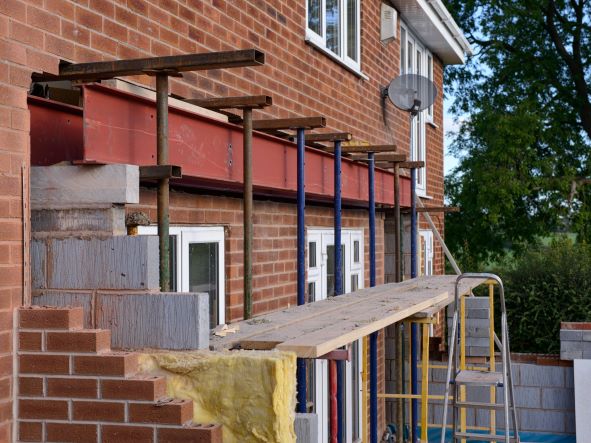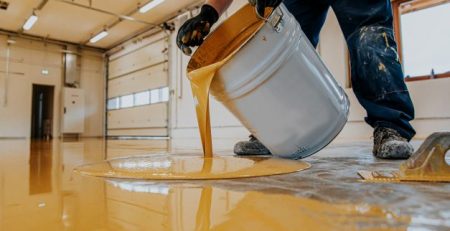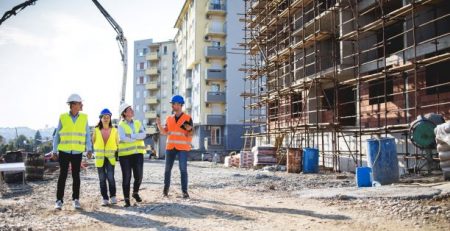DIY Home Extension: 9 Essentials You Need For Home Construction
Building your own home extension gives you total control over the process and the look of the finished project. It is a big undertaking and one that should only be taken on after careful thought and preparation. You will need a solid understanding of construction and the ability to do the work to a high quality.
Building an extension will also take time and hard work, so you will need to ensure you have enough spare time to dedicate to the project. It may also help to look for alternative accommodation, particularly for larger projects, so your daily life won’t be too significantly impacted by the construction.
Make A Plan
The first step is to decide what size and type of extension you want. If you haven’t got much experience with construction, a modest one-storey extension may be the best choice. These can be simpler to get planning permission accepted and easier to construct than larger two-storey structures.
You should also consider what you need your extension for. For instance, if you want to expand your family home to accommodate your growing family, you may need a larger extension or one with a bathroom fitted. It may help to make a list of the requirements for your extension and discuss your needs with your designer or architect.
Hire An Architect
To ensure that your project is structurally sound, you’ll need an architect to design the new structure. This can also be invaluable for ensuring you get planning permission. Look for an experienced local architect to ensure you get the best quality and service.
Factor In Sustainability
Ensuring your extension is sustainably built is critical. You should choose responsible suppliers and materials, using recycled materials where possible. Do your homework to find suppliers that source their materials ethically and responsibly.
You should also build the extension with sustainability in mind. Ensure that it has features that make it more energy-efficient and cheap to heat. Include quality insulation in all wall cavities, below flooring, and attic spaces.
Get Planning Permission
Gaining planning permission can be a lengthy process, so it is best to submit your application as soon as you have the plans from your architect. Go over your application with a fine-tooth comb to ensure there are no possible issues that the evaluator will flag. If your planning permission is rejected, you will have to pay again to reapply unless you apply again within 12 months. It is crucial to get any changes completed quickly to avoid extra costs in your planning permission application.
Buy Quality Equipment And Supplies
You will need the right tools to build your home extension. Some items may be better value if rented rather than purchased, particularly if you won’t have regular uses for them in the future. Small tools like hammers, screwdrivers and spirit levels will always be useful in any home. Larger tools like drills, electric saws and safety steps can always be beneficial.
Always source equipment and supplies from reliable businesses. To find the right fit, you should research businesses and learn about their experience and range of products. The Workplace Depot is an excellent choice for any home DIYer looking to build their first home extension.
Talk To Your Neighbours
Building works and changes to existing structures are common causes of neighbourly disputes. One of the best ways to prevent such conflicts is by discussing your plans with your neighbours in advance. Let them know what you are planning and listen to their opinions before you begin construction. Consider how your extension will impact their enjoyment of their property, including their views, sunlight and the noise of the construction.
Know When To Call A Professional
You should be realistic about your skills and understand when to bring in a professional. Work like plumbing and electrical wiring should only ever be done by a qualified professional. If you don’t have the skills or qualifications, it is best to bring in someone that does. This will ensure the safety of you and those living in your home and ensure that the work is completed to a high standard.
Learn About Building Regulations
Even if you are DIY-ing your home extension, you will still need to comply with building regulations. There are various regulations you need to follow, so you should learn the different rules inside and out. These regulations are in place for your safety and that of future occupants of the property.
Prepare For Hard Work And Disruption
Any building work is going to require a lot of hard work, and if you plan to fit the construction around your day job, this will make it even more challenging. You should be prepared for the hard work and disruption and find ways to keep your passion for the project strong. It may help to take some time off work so that you can dedicate time to the construction without sacrificing too much of your free time.











